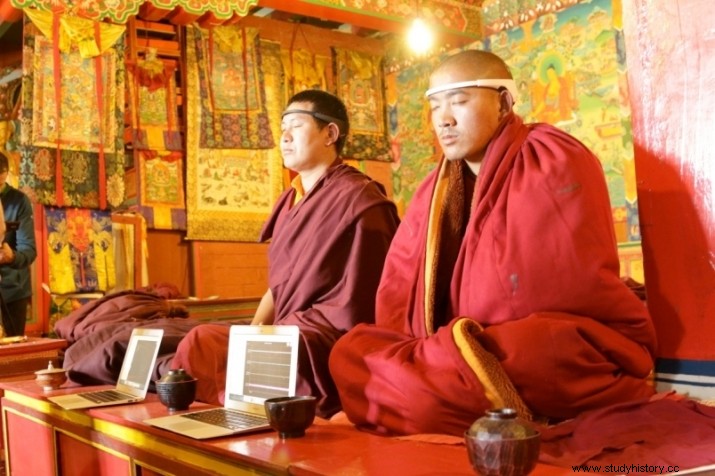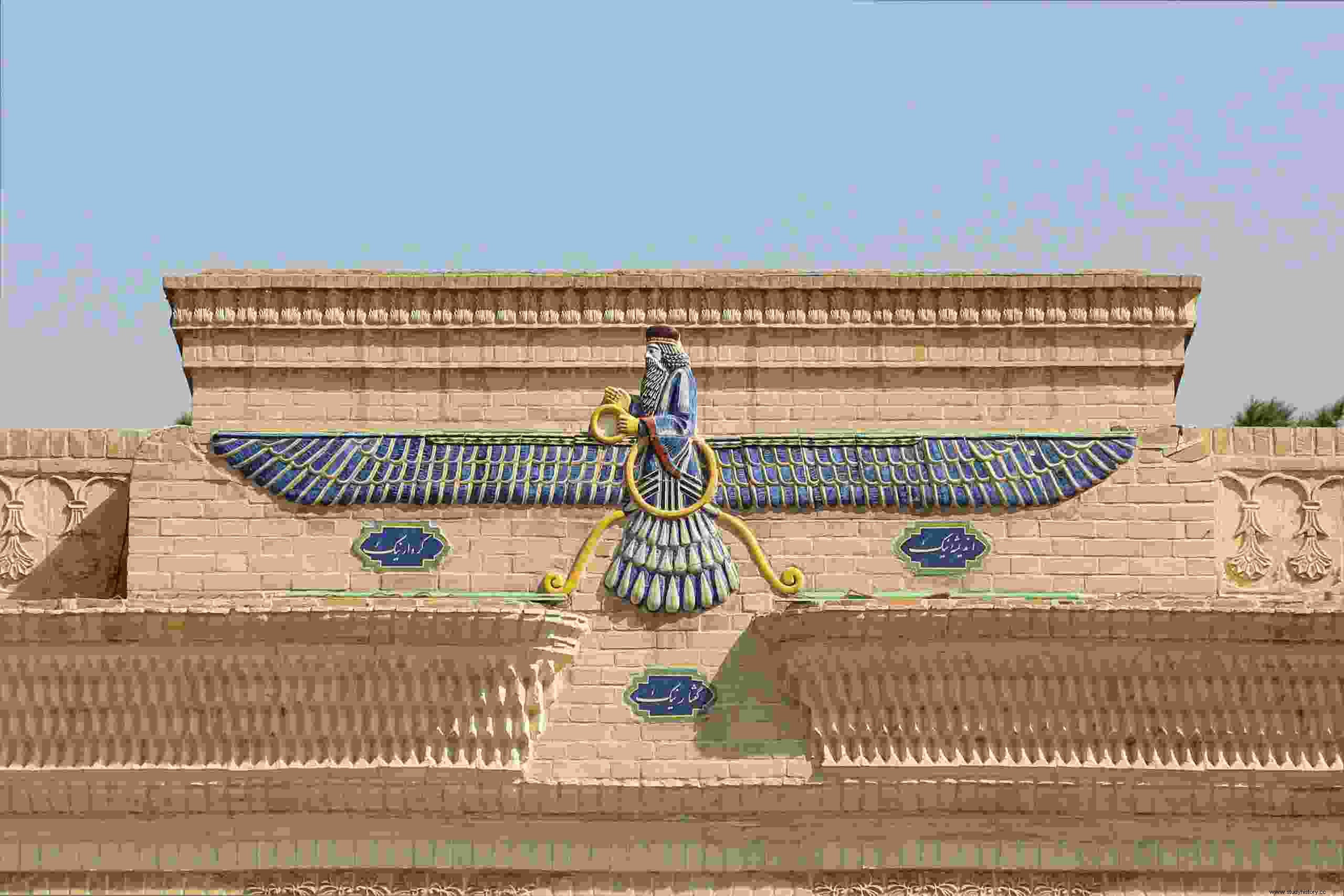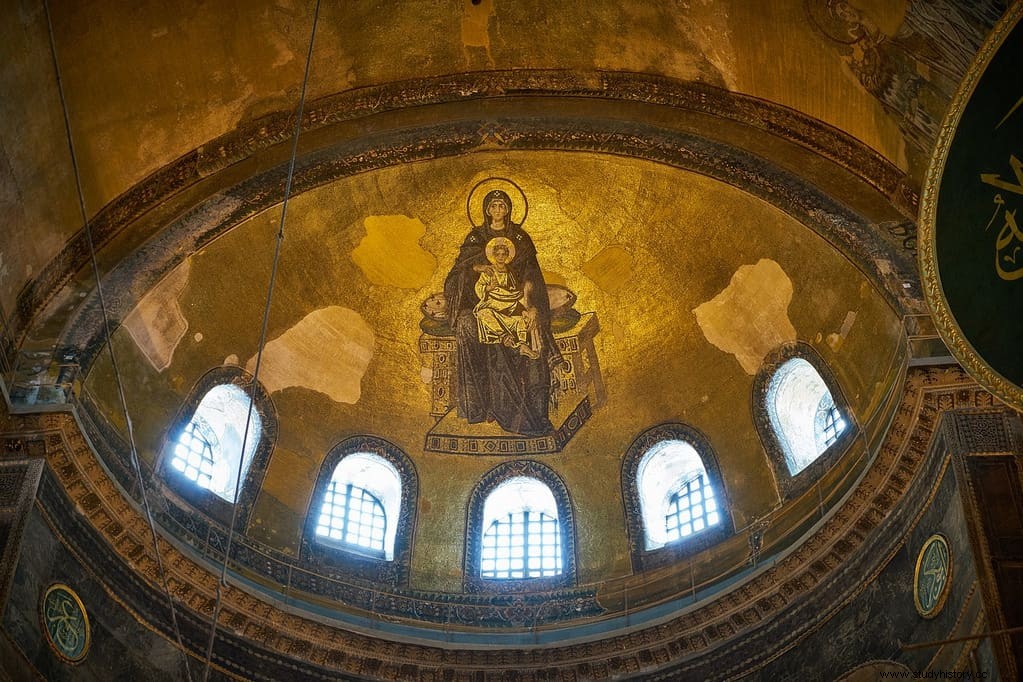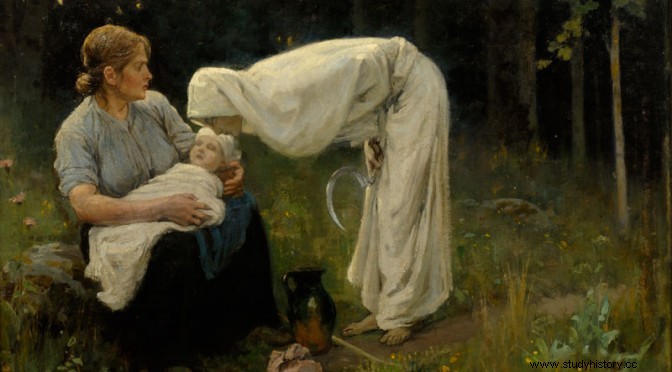Afterlife and Apocalypse:World Life After Death
2012 . The Fifth Wave . The pandemic that shook the world in 2020. What do these three have in common?
The truth is that they reveal the disposition of humanity - or at least the Western world - for apocalyptic thought. The belief is that our last moments on this earth can happen at any time and that they will be apocalyptic. Dangerous. Dystopian.
People love the thought of a grand, sudden end. But beneath this superstitious belief at the end of days are centuries of religious thought, pervasive ideology, and surprising resilience in the face of threats. And contrary to what movies seem to suggest, belief in the end of the world is not a Western phenomenon, but rather a global phenomenon.
bridge religions and cultures in the world have some ideas about what follows after death. Abraham's faith believes in heaven, hell and doomsday; while Hinduism and Buddhism suggest continuous reincarnation. This article will explore the different religious beliefs surrounding death and doomsday. In addition, this article aims to reach an understanding of humanity's surprising resilience, despite the stories we tell ourselves and the endings we believe we will be forced to face.

The afterlife according to the major Southeast Asian religions
In this section, we will cover some of the major Southeast Asian religions and their perceptions of the afterlife and the apocalypse - if they really believe in them at all.

Hinduism
Hindus believe that life and death are part of a continuous cycle, known as samsara. Each person's soul, or atman , leaves the body at death to be reborn in another form. Alternatively, some Hindus believe that before entering the next form, atman spend some time in other areas.
The form in which one is reborn depends on their karma. This is based on the deeds they have done throughout their lives. This is judged by Yama, the god of death. It is a hierarchy of forms, ranging from human (highest) to insect (lowest). Of course, the more good deeds one has completed and the better their karma, the better form they will live. Birth as a human being, according to Hindus, is a good sign. This is because it suggests that your past life was a moral life and good deeds.
There is no heaven or hell in Hindu faith, but they believe in Brahman, the supreme spirit. The journey to atman from one body to another is part of the larger journey of achieving unity with Brahman. One can only attain this union when the soul has learned to transcend the difficulties of human life. In doing so, a soul is frighteningly separated from human desires and ambitions.
Hinduism developed in India, and it is still one of the most widespread religions in the country today. For more information on Indian culture and traditions, see here. and here ..
Buddhism
Having evolved from Hinduism, Buddhism has very similar principles. This includes karma and reincarnation. However, there are several different versions of the faith. Some Buddhists believe that God judges people to either punish or reward them for their present life, to determine their future life. In this case, the soul follows the cycle of reincarnation based on karma. This is until they reach Nirvana, whereupon they become a Buddha. Nirvana can be seen as the highest form of existence, where the world's material temptations fall away while sunbathing in eternal peace. Other versions of Buddhism, however, integrate concepts of punishment and death sentence from Hinduism.
Sikhism
Like Buddhists and Hindus, Sikhs do not believe in heaven or hell. They believe that death is part of the life process, and that at death one melts back into universal nature and loses all sense of individuality. They also believe in reincarnation after death - for them there is no formal life after death.
Like Buddhists and Hindus as well, Sikhs view "heaven" as the connection and unity of a higher power-God, called Va-. Meanwhile, they equate hell with the suffering and pain caused by the ego and material temptations on earth. Sikhs view knowledge of God as outside humans and this life. As in most monotheistic religions, God is omnipresent. This means that God is clear in every creation and visible everywhere to those who are spiritually awakened. The enlightened are a new God from the heart or "inner eye". Sikhs must meditate on progress, enlightenment, overcome their egos and approach God. They also believe that God has no gender and that many words hate life.
Sikhism places great emphasis on the here and now. The bulk of your life, and the value of your soul, can be determined in the moment. In addition, there is less emphasis on punishment for bad deeds. Instead, Sikhs prioritize lessons from the bad deeds, to understand why they made mistakes and how they can be changed. The enlightened, spiritual mind is a heaven - and the unenlightened, a hell. There is no apocalypse looming in the distant future. It is only the current existence and the possibility of improving it through continuous enlightenment.
The afterlife according to major East Asian religions
This section will explore the major East Asian and Middle Eastern religions, and their thoughts on the apocalyptic future and afterlife.

Zoroastrianism
Zoroastrianism is a religion founded by the Iranian prophet Zoroaster. It is based on the premise that there will be a final renovation of the universe - where goodwill and the world are restored to their original perfection at the time of creation. Thus, the world and all its inhabitants will be in perfect union with God - known as Ahura Mazda. This is perhaps the Zoroastrian doctrine closest to the concept of apocalypse.
More specifically, Zoroastrians believe that the end of the world will mean that Ahura Mazda overthrows Ahriman, the prince of demons. Ahura Mazda will revive all human beings, participate in a final judgment, and thus restore the universe to its original goodness.
Religion also teaches that salvation for the individual - both at the time of death and at the end of the world - depends on the sum of their words, actions and thoughts during life. This affects not only their soul in the afterlife, but also the fate of the world.
Zoroastrian belief in the afterlife suggests that the soul after death waits for three nights of its grace. On the fourth night, they visit the Bridge of the Requiter, where their deeds are weighed. If good outweighs evil, the soul moves to heaven. If evil outweighs good, they are thrown into hell.
Taoism
Taoism takes an open approach to the afterlife. What one assumes is true is what they will experience at death. There are many variations and personal interpretations of the religion - some believe in immortal gods, while others prefer not to. Ultimately, however, the basis of religion suggests that we are of the Tao when we live, and join the Tao at death. Even while you are alive, you are an expression of the Tao - and that expression never changes, no matter what form your soul takes.
Like Sikhism, Taoism focuses on current life and ways to prolong it. Because of this, the desire to achieve immortality plays a major role in Taoist practice. To qualify as immortal, there are two categories of criteria that must be met. The first is known as internal alchemy, and the second is known as external alchemy.
The former involves mental practices, such as meditation and a strict diet — with an emphasis on self-control. A strict diet kills demons in the body by cleansing the body. It also stimulates and maintains energy. This may also include consumption of substances such as jade or gold. External alchemy focuses more on physical control methods, including breathing mastery, sexual practice, yoga, and the development of medical skills. Taoists believe that one's soul is connected to their vital energy - that which gives them life. Therefore, methods of external and internal cleansing can increase this vital energy power and prolong your life.
Jainism
Jainism is very similar to Taoism, Sikhism and Buddhism in its belief in the principles of karma and reincarnation. Jains believes that actions, thoughts and beliefs create karma - either good or bad. One who behaves in a consistently harmful manner, where they pose a danger to any way of life, will accumulate bad karma. Alternatively, one who behaves justly, kindly, and morally will both accumulate good karma and attain salvation. The most important principle of Jainism is peaceful coexistence with all life forms. Thus, it is not uncommon to see a Jain sweep with a broom in front of him to avoid crushing living things underfoot, or to use masks to avoid inhaling another organism.
Jainism has eight hells, which gradually get colder as you go down. It also has several heavens organized in a hierarchy, where all the liberated souls go. Unlike other religions, however, punishment in hell is temporary and not eternal. When a soul has suffered enough, they are reborn into another form, to learn lessons and free themselves from the bad karma they accumulated in their previous lives.
Jains do not believe in one God. They rather believe in several gods that are part of the cycles of rebirth. Their religious focus is on the individual soul and the attainment of Moksa - a state of freedom from the cycle of birth and rebirth, as well as karma. This state is similar to the concept of heaven - it implies ultimate peace and full harmony with nature. Practicing a spiritual and ethical life, according to Jains, will eventually free one from the limited cycles of birth.
The afterlife according to the faith of Abraham
This section will cover the three Abrahamic beliefs, in chronological order - Judaism, Christianity and Islam.

Judaism
There is no belief in the Day of Judgment Judaism. Some believe that this day will take place after the resurrection of the dead. Others believe that this judgment simply happens when one dies. Still, she does not believe that the latest verdict applies only to non-Jews, and not to the Jewish people.
Jews also have the annual cycle of Rosh HaShanah and Yom Kippur, where they atone for their sins the year before and try not to repeat them in the coming year. This practice is meant to help them on their ultimate journey to heaven in the afterlife.
Because God is just and merciful, the Jews believe that those who are not good or faithful spend variable time in 'hell.' There they are forced to undergo their harmful or erroneous deeds until they are ready to go to heaven. Jewish hell is less about suffering and punishment, and more about a temporary stopover before it finally reaches heaven.
Heaven is also a smaller place, and more an expression of the ultimate union with God. Naturally, good people (who do good deeds and practice their faith accordingly) go to heaven.
Christianity
Most Christian denominations believe that the Second Coming of Christ will mean the final judgment on mankind by God. This will result in the acceptance of some to heaven, and others to hell. This in turn depends on the deeds they performed through life and faith in Jesus. Some Christians believe that this will happen in the distant future, while others - namely Full Preterists - believe that it has already happened.
Assortment to heaven or hell therefore does not take place immediately after death. According to Anglican and Methodist beliefs, the soul suspends itself in an intermediate state between death and resurrection. At the resurrection, it is reunited with its original body and receives the final reward.
The teachings of the Catholic Church are contrary to this. They suggest that each person be sentenced immediately after death. Afterwards, it sends them either to heaven, purgatory (an intermediate waiting point) or to hell. Purgatory is a temporary stopover before you reach the sky. However, in hell they must remain there forever to be punished for their sins. Catholics also believe in both the resurrection of the dead and the final judgment, where they believe that Jesus and the angels will judge every person with perfect righteousness. By this time, those who were previously in purgatory will have already been cleansed of their sins and will be prepared to go to heaven.
Finally, some esoteric Christian denominations (such as the Aces, the Rosicrucians, and the spiritualist movement) reject the notion of the Last Judgment. Instead, they suggest that because God is merciful, the end of the world will culminate in universal salvation.
Islam
There is little difference between Christian and Islamic beliefs around the apocalypse and the afterlife. This is probably because the religions did not develop so far apart, both geographically and chronologically.
Judgment Day, called "yawm al-qiyamah", is believed to be the day when God completed his final assessment of mankind. Between death and resurrection, the soul moves to a temporary waiting place, before or even hell. Ahead of Judgment Day are a number of events, including a large black cloud of smoke covering the earth, the sun rising from the west instead of the east, and the arrival of Dajjal. Dajjal is the Islamic equivalent of the Antichrist, or false messiah. He practices black magic to receive God's followers and lead them astray. Muslims also believe in the return of Christ to fight the Dajjal - and in the ultimate triumph of Christ, whereupon the resurrection will thus take place.
Contrary to other Abrahamic beliefs, the belief in doomsday is a fundamental part of Islam. It is not variable between different Islamic sects. From Sufis For Shia Muslims, it is expected that all Muslims have the same faith in both doomsday and the afterlife. Nor does it apply to Muslims alone - religion suggests that God should resurrect and judge all individuals. He will then send the righteous to heaven (al-janJannahand the unrighteous to hell (al-nar, literally translating to "fire").
the conclusion
It is clear that as religions developed and spread in different parts of the world, they maintained different perceptions of both the afterlife and the existence of an apocalypse. Of course, there is no right or wrong belief to have, or religion to follow. What is interesting, however, is that beliefs - especially those concerning the afterlife - have shaped different cultures.
At the individual level, they influence the way one chooses to live one's life. Do they focus on the present, or one where they think they will end up when they die? Do they value the afterlife more than today's life?
At collective levels, they influence art, film and general cultural perceptions of events. Is the pandemic a sign of the need for spiritual cleansing? One of many signs of the coming apocalypse? A punishment from God for our collective sins? Or is it just a result of unfortunate events that have no moral significance?
Apocalyptic thought and its cultural effects

There is comfort in knowledge and prediction, especially when it comes to the unknown. Death and the future have much in common - both are voids of the unknown as people project their worries on themselves and the world.
Regardless of religion - if you have one at all - and what it predicts about the end of the world, it is important not to fall victim to hopelessness. The current state of the world, over the past year and a half, has caused much speculation about the coming time. But it is extremely important - if not for the sake of your mental health, then at least for the sake of those you interact with - to hold on to hope.
One thing that every religion mentioned in this article has in common is the belief that this life - if not the next - is temporary. Whatever suffering we experience will eventually culminate in peace. No matter what instability we experience, it will eventually be resolved calmly. And no matter what end we face - the end of a job, a relationship or even a life - is inevitable. The only way we can get through any of these changes, apocalyptic or otherwise, is to hold on to our hope. Because at the end of the day, that's what makes us human.
